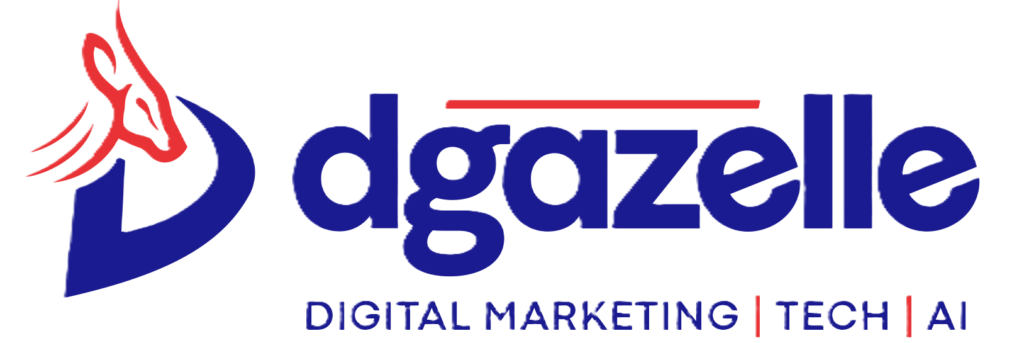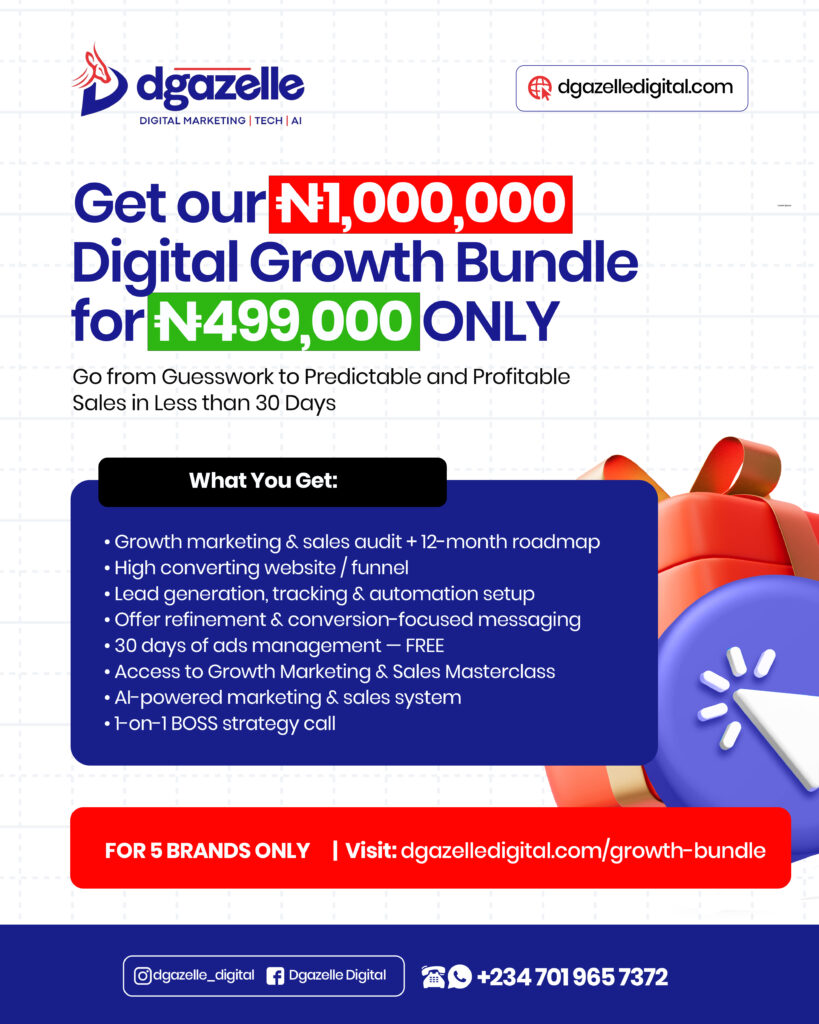If you’re a Nigerian entrepreneur running Facebook, Instagram, or Google Ads and you’re not getting results, you’re not alone.
Online advertising is one of the fastest ways to scale your business in Nigeria today. With over 122 million internet users in the country, your ideal customer is probably online right now. But here’s the catch: most Nigerian entrepreneurs are burning money on ads that don’t convert.
Whether you’re selling fashion items on Instagram, offering real estate, running a coaching business, or trying to grow a startup, ads should give you ROI, not headaches.
If you’re wondering why your ads are not working, it might be one of these common mistakes.
Let’s dive in.
1. Running Ads Without a Defined Goal
Imagine hopping on a bus without knowing the destination. That’s what running ads without a goal looks like.
One of the most common mistakes Nigerian business owners make is launching ads just to “create awareness” or “sell something”, without defining what success means.
Are you trying to:
- Generate leads?
- Increase website traffic?
- Sell a product?
- Grow your email list?
Without a specific objective, you can’t track success or optimize your results. Worse, your ad spend becomes guesswork.
What to Do Instead:
Use the SMART framework to define goals: Specific, Measurable, Achievable, Relevant, and Time-bound. For instance:
> “I want to get 100 new email subscribers from my Facebook ad campaign in 14 days.”
Facebook and Google Ads both have campaign objective settings for a reason. Choose one that aligns with your goal.
➡️ Learn more about setting ad goals
2. Targeting Everyone (e.g., “Nigerians Between 18 and 65”)
This is the most dangerous mindset: “My product is for everyone.”
While that might feel good to say, in advertising, it’s a recipe for wasting your budget.
When you run ads with vague audience settings like
- Location: Nigeria
- Age: 18-65+
- Interests: “Business, Entrepreneurship, Fashion”
…you’re telling the ad platform, “Spend my money on whoever you like.”
The result? Poor click-through rates and low conversions.
What to Do Instead:
- Create a buyer persona, a profile of your ideal customer. Get specific:
- Age: 25–34
- Location: Lagos, Abuja, Port Harcourt
- Interests: “Jumia Shopping”, “Small Business”, “Fashion Trends”
- Use Facebook Audience Insights or Google Analytics to study who interacts with your brand the most and tailor your targeting accordingly.
Check out Hubspot’s free buyer persona template
3. Ignoring the Power of Landing Pages
If you’re sending ad traffic to your homepage or WhatsApp without a clear funnel, you’re losing money.
A lot of Nigerian entrepreneurs run Instagram and Facebook ads that direct users to their DM or WhatsApp. That can work, but only if there’s a sales system behind it.
Without a structured landing page, you’re missing out on:
- Data collection (emails, phone numbers)
- Conversion tracking
- Customer segmentation
Your landing page is where the real selling happens.
What to Do Instead:
Use platforms like
- ConvertKit (for email opt-ins)
- Mailchimp
- MailerLite
- Systeme.io (popular and beginner-friendly)
A good landing page should:
- Have a strong headline
- Explain your offer clearly
- Show social proof
- Have one call to action.
4. Copywriting That Doesn’t Sell
Online ads are not just about showing products; they’re about persuading people to act.
Yet many Nigerian entrepreneurs run ads with copy like
> “Shop now. Buy original bags. We deliver nationwide.”
That won’t cut it.
If your ad doesn’t hook attention, highlight a pain point, and present a solution, people will scroll past. Your ad needs to make people stop, feel, and act.
What to Do Instead:
Use the PAS Formula:
Problem: What problem does your audience face?
Agitation: Why is it urgent to solve now?
Solution: What are you offering as the solution?
Example for a real estate ad:
> Tired of endless rent payments in Lagos?
What if you could own a home for less than your current rent?
Get your first plot of land in Ibeju Lekki, starting from ₦500K.
DM us now to book a free site visit.
Also, test multiple versions of your ad copy. A/B testing helps you discover what works best.
5. No Follow-Up System (The Money Is in the Follow-Up)
Here’s a harsh truth:
Most sales don’t happen on the first click.
Yet many Nigerian entrepreneurs run ads and expect people to buy immediately. When they don’t, they assume the ads “didn’t work”.
But people need to:
- See your brand multiple times
- Get reminders
- Be nurtured
Without a follow-up system like email marketing, WhatsApp automation, or retargeting ads, you’re leaving a ton of money on the table.
What to Do Instead:
Use these tools:
- Email Sequences: Send welcome emails, product guides, and discount offers.
- Retargeting Ads: Show ads to people who visited your site or clicked your last ad.
- CRM Tools: Track leads and automate follow-ups (e.g., GoHighLevel, Hubspot, Flowlu)
In fact, retargeting ads can improve conversion rates by up to 70%.
Read how retargeting works
Final Thoughts: Ads Don’t Fail, Strategies Do
The truth is, online advertising works, and Nigerian entrepreneurs who master it are growing faster than ever.
The problem isn’t the platform; it’s the strategy.
If you’re tired of running ads with no results, it’s time to fix your ad funnel, clarify your message, and build follow-up systems that convert.
You don’t have to figure it all out alone.
Need Help Turning Clicks into Customers?
At Dgazelle Agency, we help Nigerian businesses like yours run conversion-focused ads that attract leads, boost sales, and scale your brand.
Whether you’re new to ads or you’re tired of wasting your budget, our team can help you:
- Craft irresistible ad copy
- Build high-converting landing pages
- Create automated sales funnels
- Retarget leads who didn’t convert the first time
👉 Click here to book a free strategy session with Dgazelle Agency
or
Let’s help you get results, not regrets, from your online ads.







